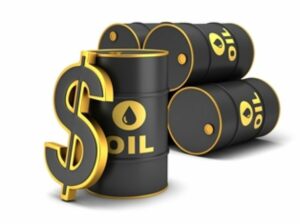Since the millions of citizens cannot all be at the helm of affairs, the fiduciary role is placed in the hands of the agents (governments of the day) to ensure proper management to the benefit of all.
To many, revenue management is the application of disciplined analyses that predicts consumer behaviour at the micro-market level and optimises product availability at good prices to maximise revenue.
The case of oil & gas
Ghana added oil and gas to its collection of natural resources in 2007. From what is perceived to be mismanagement or misapplication of revenue from gold, bauxite, timber and other resources, the country is making frantic efforts to ensure prudence in its approach to the application of proceeds from the oil sector.
The country has already bought into the idea of ensuring sustainable management of oil receipts and has subsequently set up various funds such as the Stabilisation, Heritage, Infrastructure contingency funds all aimed at ensuring the best use of resources.
The country has also agreed that after the oil resources are depleted, all funds would be merged into a sovereign wealth fund, according to Section 20 of the Petroleum Revenue Management Act, 2011 (Act 815).
The World Bank considers sovereign wealth funds (SWF) an effective policy tool to manage large and volatile revenues from extractive industries to cushion fluctuations in commodity prices, stabilising public spending and mitigating the fiscal and economic impacts of external shocks.
Investing the oil revenue
From the framework of Ghana’s Petroleum Revenue Management Act, allocations are made from the Petroleum Holding Fund to the stabilisation and heritage funds to cater for generations yet to come.
Act 815 provides that monies accruing to the stabilisation and heritage funds are to be invested in “qualifying instruments” offshore prescribed by executive instrument subject to review after every three years. The Act also bars using the funds as credit to government, public enterprise, private sector entities or persons or as collateral for debt, commitment and also not even borrowing against reserves of oil underground.
Prudently, the chunk of the benchmark revenue from oil representing 70 per cent are appropriated through the national budget for the support of various projects in areas to be determined by the finance minister in the absence of long-term national development plan such as pertains in the country currently.
However, one would have expected that the remaining 30 per cent for the funds would have part of it invested in the country in its quest to build investment portfolios to diversify risk and serve the needs of today.
Accordingly, taking the entire revenue in the petroleum holding fund in a way, where 70 per cent appropriated through the national budget while the 30 per cent in international instruments outside the country follows the principles of building portfolio.
However, in the case of the heritage and the stabilisation funds, which target only in well-acclaimed instruments, the country seems to be tilting towards one direction of investing only internationally which may not be bad but there is the need to take a second look at that move. It could be a module that worked in other countries and not in Ghana.




